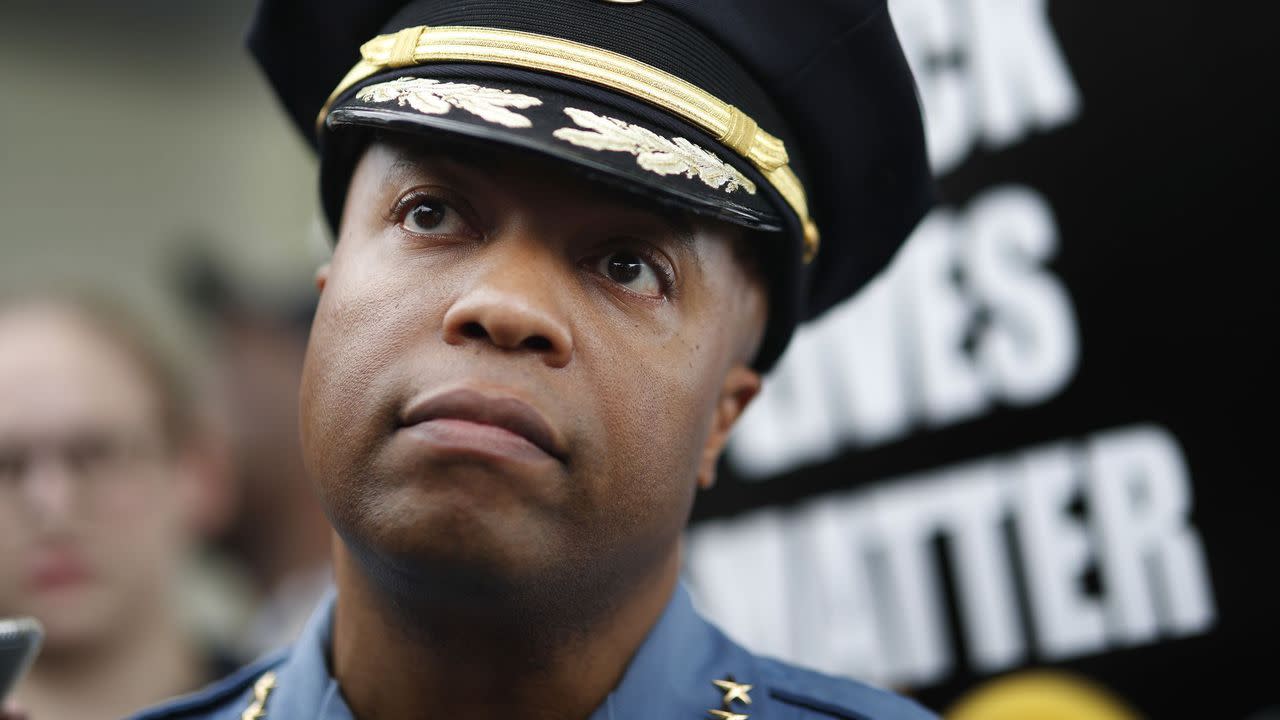
The Telegraph
Thandie Newton reveals she will use original spelling of her name from now on
She has been known by an anglicised version of her name for the entirety of her hugely successful career. But Thandie Newton has revealed that she will now revert to the original, Zulu spelling of her name, declaring: “I’m taking back what’s mine”. Born Thandiwe, meaning “beloved,” the actress simply accepted that her name would be adapted as she embarked as a teenager on a career in the competitive and cut throat world of film. At the age of 48, she has reclaimed her heritage, declared that in future films, she will be credited as Thandiwe Newton, after the W was dropped from her first credit. “That’s my name,” she told Vogue magazine. “It’s always been my name. I’m taking back what’s mine.” Newton has previously considered reverting to her original name, but said in 2017 she did not think it worth the hassle, believing it was more important people recognised her work. “What’s in a name? What’s in a skin colour?” she said in an interview. “C’est la vie. C’est la guerre.” But the world is a different place and Newton, a different woman. Last week, she expressed outrage over the Government’s contentious report over race disparity in the UK, taking to Twitter to suggest it could only be an April Fools joke. “There’s no way it can be real – it would be unethical insanity,” she wrote, urging young people of colour to share their responses to the report, which claimed systemic racism did not exist in the UK. Newton has lived with racism for her entire life. Born in London to a British father, Nick, and a Zimbabwean mother, Nyasha, a princess from the Shona tribe, she spent time in Zambia before the family relocated to Penzance, Cornwall, when she was three. On her first day at a Catholic school, a nun told her mother: “We’re very excited, we’ve never had one before” and she was later banned from a school photograph for wearing cornrows. Newton has acknowledged that her mixed race heritage meant that when she was younger, she had no sense of herself. “I was not considered anything,” she once said. “There was a lot that people could have been interested in in me when I was young. They didn’t want to express it, because they didn’t want to praise the black girl.” Forced to look abroad for work because of a lack of opportunities in the UK, she has said: “I can’t do Downton Abbey, can’t be in Victoria, can’t be in Call The Midwife – well, I could, but I don’t want to play someone who’s being racially abused.” Elsewhere in the Vogue interview, Newton indicated that as she had become older, her mindset had changed, and that she had been inspired to use her personal experiences to be more outspoken. Discussing her role in Westworld, she said she loved how subversive it was. “Wherever I position myself now, I don’t want to be part of the problem, I want to be part of the solution,” she said. “I’m not for hire anymore. I’m not going to speak your story or say your words if I don’t feel they could’ve come from me.” The actress said she found that acting took more and more away from her “because I’m more connected to myself than I’ve ever been, whereas before… I couldn’t wait to get away from myself, truly, I had such low self-esteem.” The actress also discussed how she was abused by a director when she was 16 and the moment she realised she needed to seek help for an eating disorder. Newton responded to a now deleted tweet about the spelling of her name in 2016. “Thandiwe is a Zulu name meaning Beloved,” she said. “Thandie is an abbreviation. You don’t have to pretend anything.” See the full feature in the May issue of Vogue available via digital download and newsstands on Friday April 9